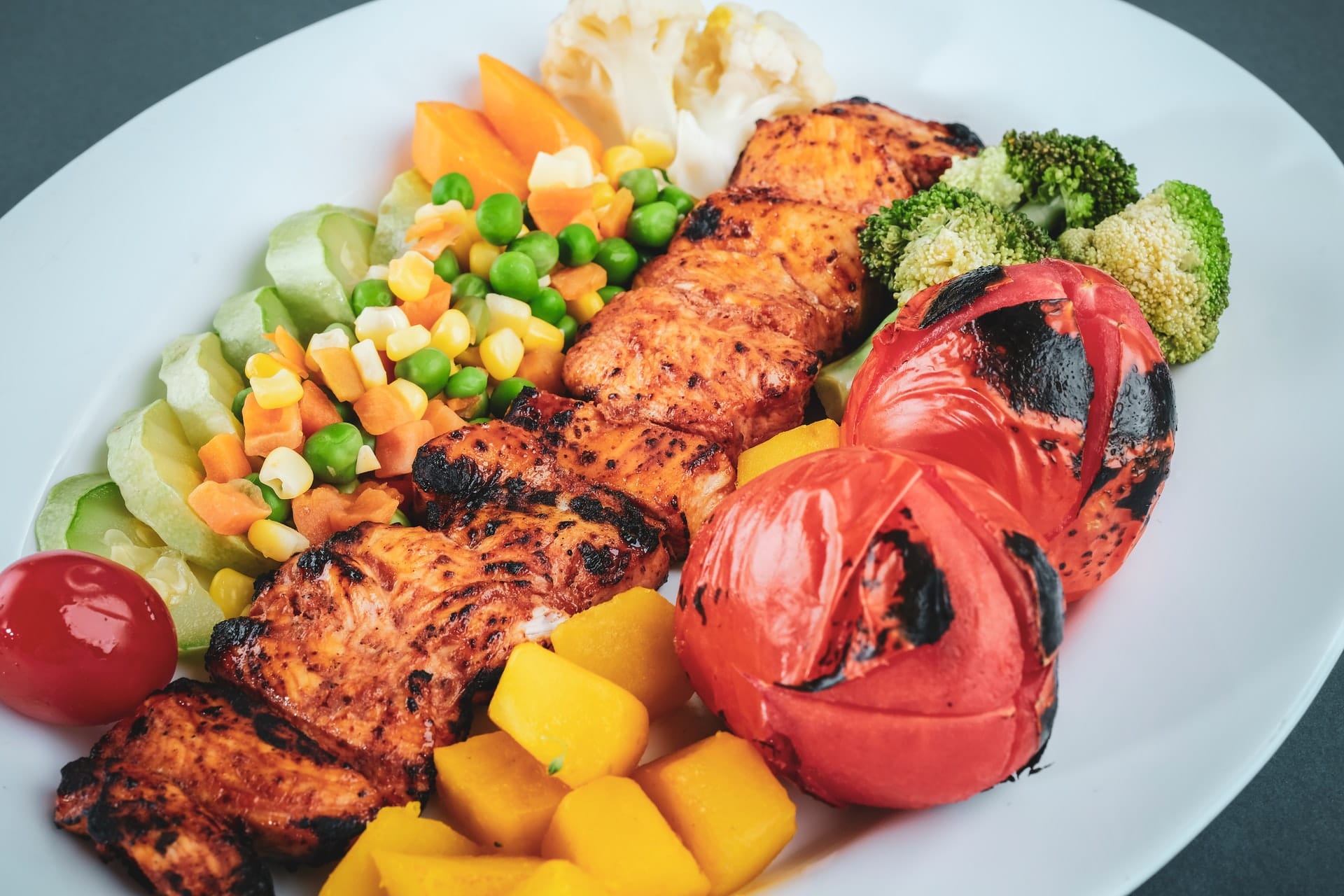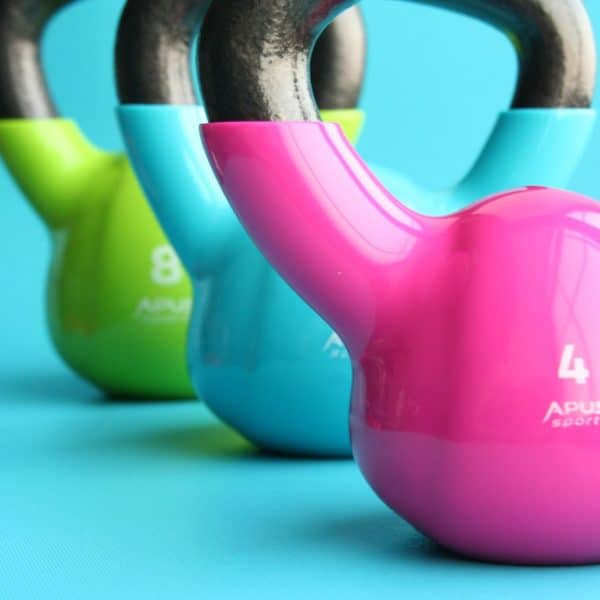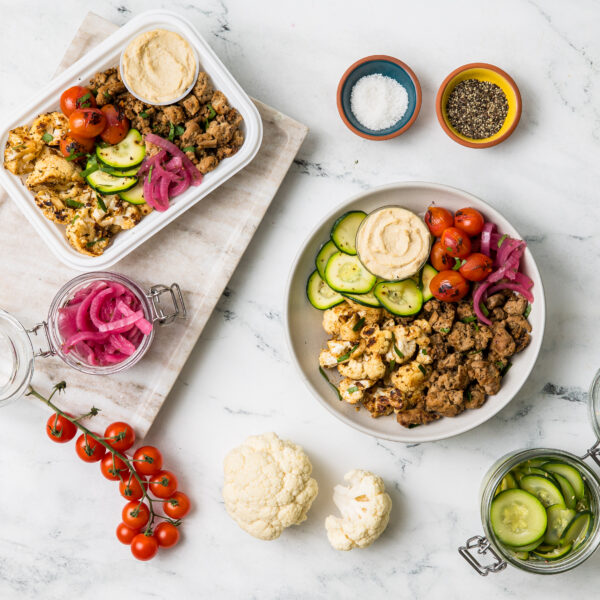Inspired by the healthy eating habits of people living in the Mediterranean (countries including Italy, France, Greece, and Spain), this diet has been linked with good health. It’s generally high in fruits and veggies, nuts, beans, grains, fish, unsaturated fats like olive oil, and more.
What is the Mediterranean Diet?
To classify as a Mediterranean diet, an eating pattern should include:
- Low to moderate amounts of dairy products, eggs, fish, and poultry
- Lots of fruits and vegetables
- Plenty of grains, potatoes, beans, nuts, and seeds
- Olive oil as the primary fat source
By eating whole, single-ingredient foods, you’ll be on a great path to good health. This healthy diet routinely comes out on top of the US News and World Report annual ranking of best diets. But what exactly makes it so healthy?
Health Benefits of the Mediterranean Diet
According to Harvard’s T.H. Chan School of Public Health, “research supports the use of the Mediterranean diet as a healthy eating pattern for the prevention of cardiovascular diseases, increasing lifespan, and healthy aging. When used in conjunction with caloric restriction, the diet may also support healthy weight loss.”
Because this diet focuses heavily on unsaturated fats and limits saturated fats, it can help promote heart health. The monounsaturated fat that is plentiful in olive oil can help lower overall cholesterol levels and specifically the “bad” cholesterol levels. These monounsaturated fats can also be found in nuts and seeds like almonds, sunflower seeds, cashews, and more.
Seafood, specifically fatty fish, are rich in omega-3 fatty acids (polyunsaturated fats) that help to fight inflammation throughout the body. On top of that, these fatty acids even help to lower the risk of stroke and heart failure, as well as reduce blood clotting.
* Health tip: The Mediterranean diet and wine are typically associated with one another – since one glass of wine daily can help to reduce the risk of heart disease, but there are many other health risks associated with overconsuming alcohol, so make sure to enjoy it!
Foods of the Mediterranean Diet
Looking to start eating Mediterranean? Try incorporating some of these foods into your diet:
VEGGIES:
- Tomatoes
- Kale
- Spinach
- Broccoli
- Carrots
- Brussels sprouts
- Cucumbers
- Onions
HERBS AND SPICES:
- Garlic
- Pepper
- Basil
- Mint
- Cinnamon
FRUITS:
- Strawberries
- Bananas
- Apples
- Peaches
- Figs
- Grapes
- Dates
NUTS AND SEEDS:
- Almonds
- Pumpkin seeds
- Cashews
- Walnuts
- Sunflower seeds
SEAFOOD:
- Salmon
- Sardines
- Tuna
- Mussels
- Oysters
- Clams
- Trout
- Shrimp
Our favorite recipes
Now that you know some of the best ingredients for a Mediterranean diet, here are five of our favorite recipes to get you started on your Mediterranean food journey:
Polenta with Roasted Mediterranean Vegetables
This recipe is a great way to get your serving of various veggies, all while eating a tasty and <300 calorie meal.
Pasta with Spinach, Garbanzos, and Raisins
This dish is a mouth-watering, healthy meal that is a great recipe for two cooks in the kitchen – aim to finish the sauce and the pasta at the same time to avoid overcooking.
Bean Salad with Balsamic Vinaigrette
In the mood for salad? This salad is high in fiber and healthy carbs. Beans are a great source of soluble fiber, which can help moderate blood cholesterol and blood sugar levels.
Too busy to cook? Snap Kitchen has you covered! Some of our favorite Mediterranean Diet compliant dishes include Romesco Chicken, Naked Chicken with Roasted Cauliflower and Green Beans, or Almond Crusted Salmon.
Whether you’re in the mood for a tasty salad, dinner dish, or even dessert – but want to keep it healthy – consider a Mediterranean diet. This diet doesn’t sacrifice flavor or nutrition, and is a great way to keep your heart happy (literally!) and get you feeling your best.
Ready to try something new? Check out some of the nutritious and delicious Snap Kitchen meals.





Leave a Reply
No Comments